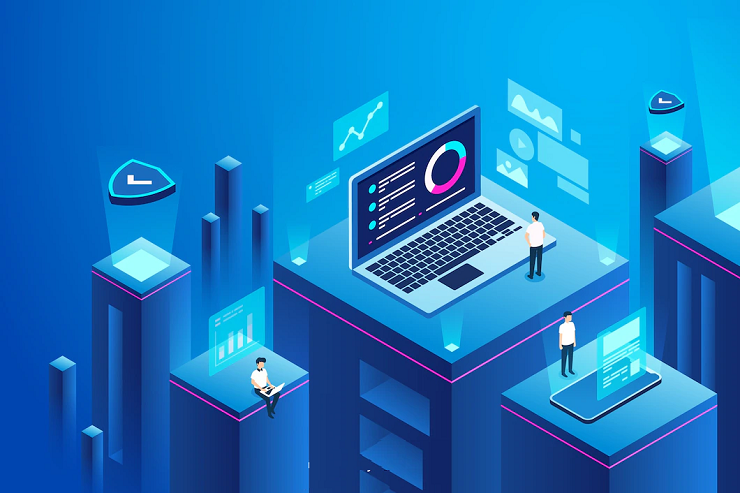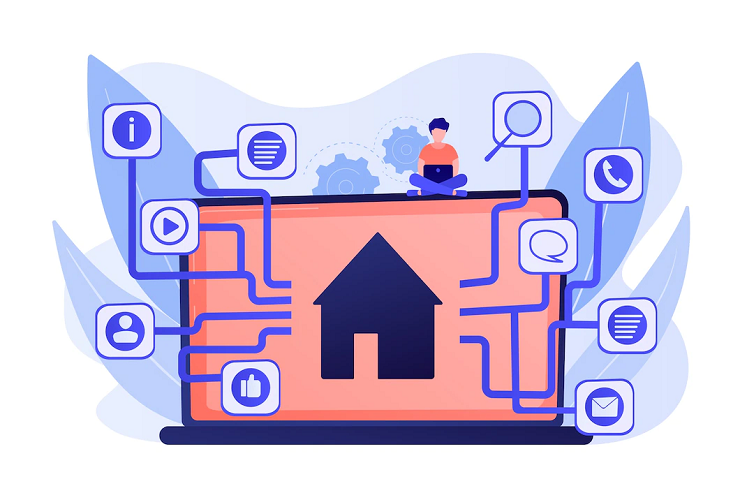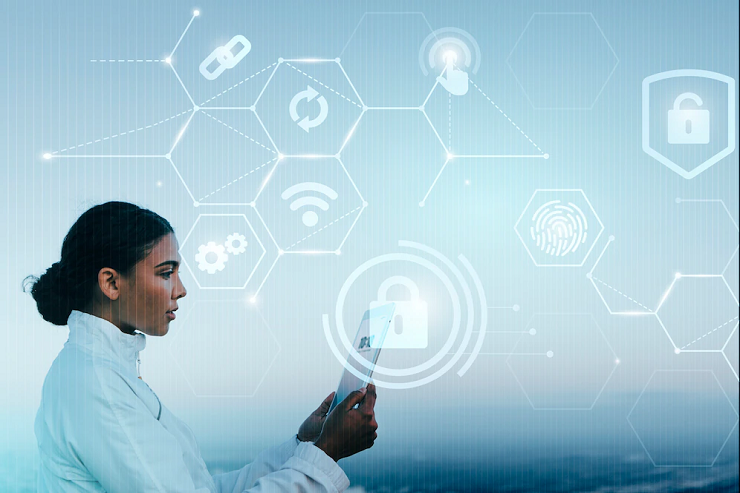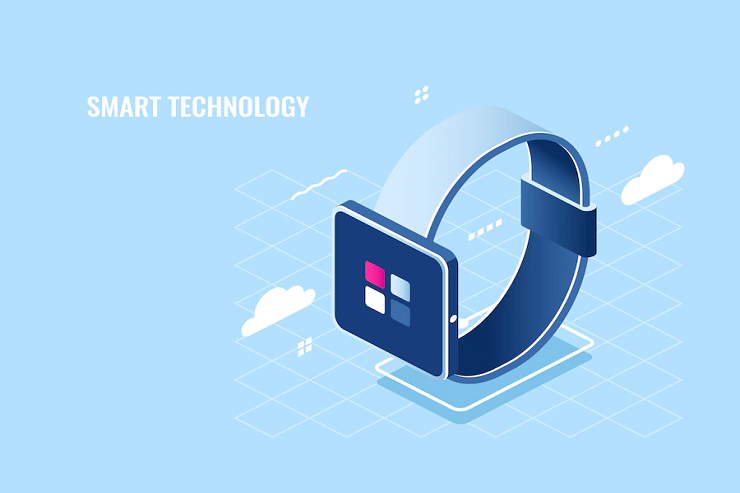
The term “Internet of Things,” or IoT, was coined in 1999 by Kevin Ashton. IoT did not, however, start to gain worldwide traction until Gartner added it to its list of emerging technologies in 2011. Globally, there were 21.7 billion connected devices in use as of 2021, with more than 11.7 billion of those being Internet of Things (IoT) devices (54 percent). This shows that there is more Internet of Things (IoT) devices than non-IoT devices worldwide.
What Is IoT?
The Internet of Things (IoT) is the collective term for the billions of physical objects or “things” that are linked to the web and all of which collect and transmit data to other systems and devices via the web. Although the Internet of Things has been around since the 1990s, recent developments in numerous technologies, including
- Sensors that are reliable and affordable.
- More people have access to cloud computing platforms.
- Technological advancements in AI and machine learning.
IoT gadgets can be anything from basic home appliances to sophisticated industrial machinery. Each Internet of Things (IoT) device has a unique identifier (UID) and can exchange data without human intervention.
How Business Uses IoT?
IoT ushers in a new era of automation for businesses. And it applies to businesses of all sizes and industries, so the conclusion is straightforward: your company may benefit from the applications of IoT in businesses as well. Here are a few examples of how businesses use IoT:
1. Boost In Productivity And Profitability
Through automation, IoT aids in the creation of optimized workflows. It lessens repetitive tasks and enables the most effective utilization of machinery and resources. Organizations benefit from optimization by reducing wasted man-hours and increasing operational efficiency.

2. Asset Tracking And Optimal Asset Utilisation
IoT can link every piece of machinery, equipment, asset, and unit to a single network. Businesses can then track assets and manage equipment using smart sensors. Waste is decreased and the entire process is optimized thanks to real-time insights and autonomous control. IoT is used by asset-intensive industries like transportation to promote transparency through location updates and tracking.
3. Cost Reduction
IoT solutions improve existing processes in manufacturing, supply chain, manufacturing, and other industries. Streamlined operations reduce downtime and costs. Manufacturing is the best example of cost reduction through IoT technology.
4. Discovers New Business Opportunities
For more in-depth analytics, IoT connects hardware, software, and artificial intelligence. Businesses can use IoT to propel their operations into the future thanks to better insights. Based on new patterns, businesses create new product lines and business models. For instance, insurers base premium calculations on driving behaviors. Retailers analyze consumer behavior to plan their inventory levels and in-store displays. IoT-based beacon technology is used by marketers to collect consumer insights. Data analysis assists companies in preparing products for the market and adjusting to change.
5. Work Environment Security
IoT is fundamentally a great technology to enhance safety procedures in your business. IoT can be used in a variety of ways in this context; for instance, remote access to large machinery powered by IoT eliminates the need for people to approach and interact with potentially harmful machinery. Wearables can be used to monitor the health of workers in danger zones and alert authorities if their condition deteriorates. If used properly, IoT is a precise technology that reduces the need for human intervention and eliminates room for error. Continuous observation and tracking will reduce workplace accidents and make the environment safer overall.
You Can Also Read “Top Formidable Cyber Security Challenges & Threats For IoT Devices“.

What Is The Future Of IoT To Enable Businesses?
People assume that technology must be relevant to the IT industry and will only benefit that industry. However, the Internet of Things is leaving its mark on many important spheres of commerce and our everyday lives.
I) Health Care
The IoT’s connection system is beneficial to the healthcare industry in many ways. Through tools like smartwatches, fitness bands, or other similar devices, you can daily analyze patients’ key body metrics. Additionally, many smart medical devices strengthen the healthcare sector and contribute to people’s overall health. These smart devices’ ability to collect personalized data enables medical professionals to recommend better treatments without subjecting patients to a battery of tests. The healthcare sector is more open to IoT development.
II) Industrial Sector
The Industrial Internet of Things (IIoT) is another name for it. Due to the IIoT’s sensors, software, and big data analytics capabilities to develop effective solutions for the industry, industrial engineering is quite advantageous. Operations in the manufacturing sector frequently use the IIoT. IIoT can be used for cost management, increased operator productivity, production visibility, continuous cycle analysis, and cycle visibility. Additionally, supply chain optimization, facility management, and machine utilization can help industrialists.
III) Retail Purpose
It is well-known and widely used by end users in real time. It establishes a link between the retailer and the customer via smartphones. Retailers can use this connection to stay in touch with their customers and sell to them directly. It also assists them in determining demand by providing real-time feedback. It improves the virtual customer experience by meeting their needs and conveniently delivering them to their homes.
IV) Smart Wearables
Smartwatches and smartphones are not the only examples of smart wearable technology. It has much more to offer than that. You can use smart eyewear as an eye-search engine. Ear wearables allow you to connect to your phone via the internet. E-books are becoming more convenient because they are now available on your phone. Portable chargers keep your phone charged even when there is no power. Every day, many such devices make your life easier and better. All of the information you require is now available in one of your wearables. As a result, we are not afraid to say that smart wearables are making people smarter.

In A Crux:
You can mold the Internet of Things however you need to develop new business models and revenue streams, regardless of whether you’re a developing startup or a large corporation. The Internet of Things is currently dominating business automation. Any business, in any industry, can increase productivity with IoT while lowering operating expenses and staffing requirements. And by creating a unique IoT application, it can be done with ease. You can connect sensors and devices to the cloud, gather and secure data, and gain insights in real-time to make timely business decisions by developing an IoT platform. We’ll assist you with the quick, secure, and scalable development, deployment, and management of IoT applications and solutions.
